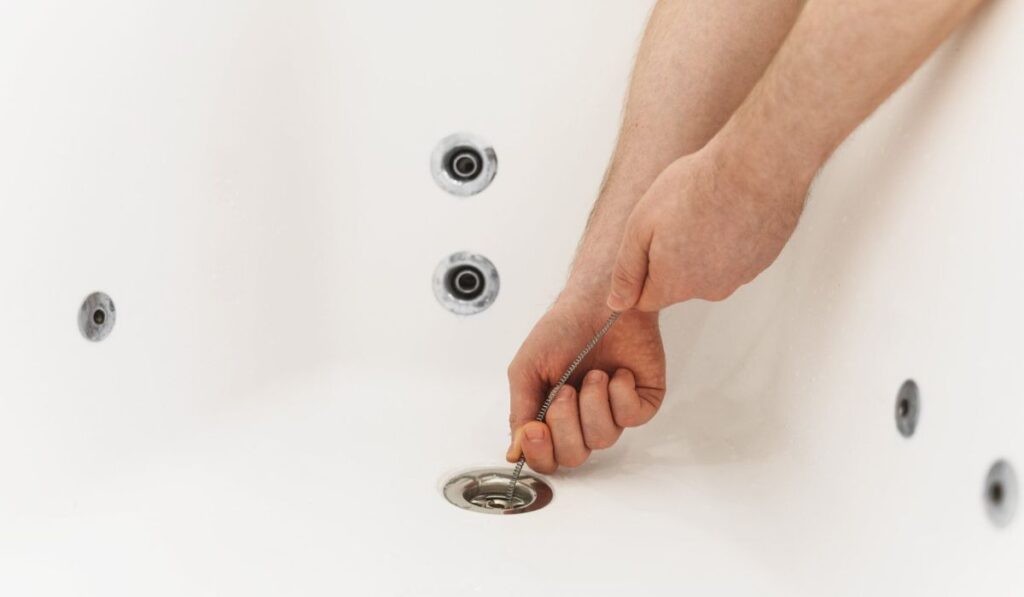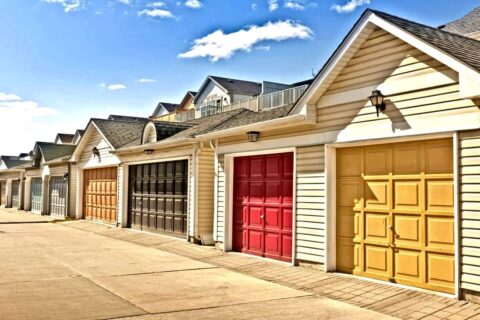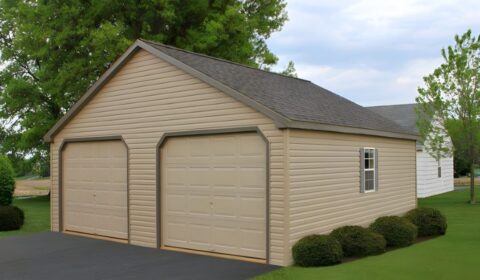If your bath won’t drain properly, the most common cause is a:
Clog from hair, soap scum, or debris. First, remove visible blockages from the drain. Next, try using a plunger or a drain snake to clear deeper clogs. For minor issues, a mixture of baking soda and vinegar, followed by hot water, can help. If the problem persists, it’s best to call a professional plumber.
A relaxing bath can quickly become a frustrating experience when the water refuses to drain away. Standing water, slow drainage, or unpleasant smells coming from the plughole are common problems faced by many homeowners. If left unaddressed, these issues can lead to more severe plumbing concerns, including pipe damage and costly repairs.
While some drainage problems can be resolved with simple at-home solutions, persistent or recurring issues often require the expertise of a professional. In this guide, we’ll walk you through the steps you can take when your bath won’t drain properly — from quick DIY fixes to knowing when it’s time to call in a specialist.
Identify the Problem Early
Recognising the signs of a drainage issue early can save you from expensive damage later on. Some common indicators include:
- Water drains slowly after you pull the plug
- Standing water in the bath after several minutes
- Gurgling sounds from the drain or pipes
- Foul odours coming from the plughole
The most common causes of bath drain problems are:
- Hair buildup, which tangles with soap and other debris
- Soap scum that hardens inside pipes
- Foreign objects accidentally dropped into the drain
- Mineral buildup in areas with hard water
By acting quickly at the first sign of a problem, you can often prevent a larger issue from arising down the line.
Try Simple DIY Solutions First
Before reaching for the phone, it’s worth trying some simple home remedies:
- Remove Visible Debris
- Use a pair of gloves or a basic drain snake to pull out any visible hair or soap scum clogging the drain. Many times, this is all it takes to restore proper drainage.
- Boiling Water Flush
- Pouring boiling water directly into the plughole can help break down soap scum or grease buildup. However, be cautious if you have PVC pipes, as very hot water might damage them.
- Baking Soda and Vinegar Mixture
- Pour half a cup of baking soda into the drain, followed by half a cup of vinegar. Cover the drain with a cloth or plug and leave it for 15–30 minutes. Follow it with hot water. This natural solution can be effective for mild blockages.
These methods work well for minor, surface-level clogs but may not be enough for deeper or more stubborn blockages.
Use a Plunger Effectively
In the case if above methods don’t work, the trusty plunger may help.
- Ensure there’s enough water in the bath to cover the plunger’s cup.
- Seal the overflow opening with a damp cloth to improve suction.
- Position the plunger over the drain and pump up and down firmly several times.
If the water starts to drain freely, you’ve successfully removed the blockage. If not, let’s move on to a more thorough inspection.
Know When to Call a Professional
If none of the above methods solve the problem — or if you continue to experience repeated blockages — it’s time to call in the experts. Signs you need professional help include:
- Persistent slow drainage even after multiple attempts to clear it
- Water backups elsewhere in your home, like sinks or toilets
- Unusual sounds or foul smells that linger
- Signs of pipe damage or leaks under the bath
- Specific local issues, such as a blocked bath in Whitstable, can often require specialist knowledge of the area’s drainage systems.
For such cases, a trusted company like Any Drains offers expert services in clearing blocked drains, including those in baths, and can provide fast and reliable solutions. They have extensive experience with blocked baths in Whitstable and the surrounding areas. For more details, you can visit Any Drains.
Calling in a professional ensures that hidden blockages are correctly diagnosed and resolved, preventing costly damage and recurring problems.
Consider Chemical Drain Cleaners (With Caution)
Chemical drain cleaners are widely available and can be effective on grease or soap blockages. However, they should be used sparingly due to their harsh nature.
- Follow the manufacturer’s instructions carefully.
- Avoid overuse to prevent pipe damage.
- Never mix different types of chemicals, as this can cause dangerous reactions.
Remember, chemical cleaners are often only a temporary fix and don’t address the root cause of severe blockages.
Check the Overflow and Trap
The bath overflow and the U-bend trap under your bath are key components in the drainage system. The overflow pipe can accumulate debris, while the trap might catch objects like hair or jewellery.
- Check the overflow cover and remove any debris that may be present.
- If you’re confident with basic plumbing, you can manually detach the U-bend to clear blockages. Have a bucket ready to catch water, and ensure you reattach the fittings securely afterwards.
If this step seems too technical or if you’re unsure about your plumbing setup, it’s best to skip the DIY approach and seek professional help.
Preventing Future Drain Issues
Prevention is always better than a cure. Here are some practical tips to help maintain a healthy bath drainage system:
- Install a hair catcher over the drain to trap debris before it enters your pipes.
- Flush the drain regularly with boiling water or a solution of baking soda and vinegar.
- Avoid pouring oils, greasy substances, or sticky bath products down the drain.
- Schedule routine maintenance with a drainage expert to catch minor issues before they escalate.
Preventive care ensures your plumbing stays in good condition and helps you avoid emergency repairs.
Conclusion
Dealing with a bath that won’t drain properly is never pleasant, but knowing the proper steps can make the process easier and less stressful. Start with simple DIY solutions, but don’t hesitate to seek professional help when necessary.
Companies like Any Drains, recognised as expert drainage specialists, offer comprehensive services that include emergency unblocking, CCTV inspections, and a 24-hour plumber service to handle urgent drainage problems. Their professional expertise ensures your plumbing issues are resolved effectively and safely.
By taking action early and maintaining your drains regularly, you can enjoy hassle-free baths and peace of mind in your home.
Read More Blogs at: The Home Designer





